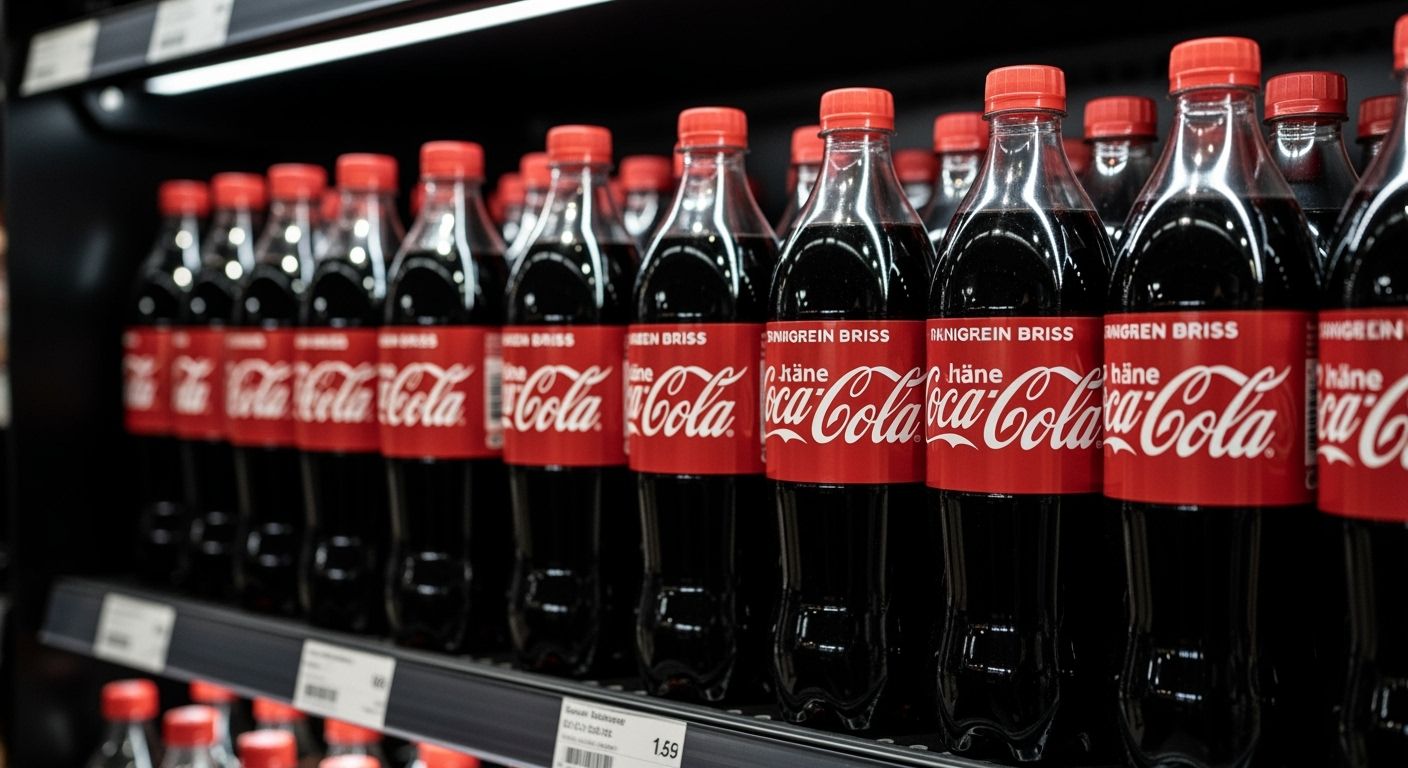Related Articles

China's Ambitious Pursuit: Challenging America's AI Dominance




FRANKFURT – In a strategic pivot aimed at bolstering its standing in one of Europe’s largest markets, beverage giant Coca-Cola has launched a significant rebranding initiative in Germany, emphasizing local production and national identity. This move comes as American brands, once symbols of progress and lifestyle, face a challenging public image environment in Germany and across other international markets, prompting companies to actively disassociate from the broader perception of the United States. The campaign, which highlights the company's deep ties to Germany, underscores a broader trend of global corporations adapting their messaging to navigate increasingly complex geopolitical and social landscapes.
The Atlanta-based corporation's new "Made in Germany" campaign features German employees like Daniel, Heike, Jana, Jessy, and Muhammed, prominently displaying their names alongside the slogan: "Made by [employee name]. Made in Germany." This localized approach seeks to communicate that the vast majority of Coca-Cola products consumed in Germany are, in fact, bottled and produced within the country, a detail many German consumers reportedly remain unaware of. The company states the campaign aims to showcase its nearly century-long integration into German business and society. This localized branding represents a notable shift for a company historically synonymous with American culture and global ubiquity, signaling a strategic response to evolving consumer sentiments and the perceived erosion of the United States' international reputation.
For decades, American brands enjoyed an unassailable image in Germany, particularly in the western regions after World War II, where US products often symbolized modernity and prosperity. However, the current political climate has significantly altered this perception. The image of the United States in Germany has taken a "major beating," creating a challenging environment for US companies striving to maintain their reputation. Recent German media coverage and market analyses suggest that the global reputation of US products is slipping, not just in Germany but also in other countries like Canada and Denmark, where consumers are increasingly skeptical of American brands.
This broader disillusionment is not unique to Coca-Cola. Other prominent American firms are also adapting similar localization strategies. McDonald's, for instance, Germany's largest fast-food chain, has been actively emphasizing its significant German sourcing, proclaiming itself "a long-standing partner of German agriculture" and a "reliable part of everyday life". McDonald's highlights that 65% of its raw materials, including pork, beef, eggs, cream, and cucumbers, are sourced entirely locally. The impetus for such rebranding efforts is often linked to the perceived political stances or public actions of figures associated with American corporations, with one media outlet citing the example of Tesla's declining popularity in Europe, attributed to the political views of Elon Musk. This demonstrates how deeply political and social perceptions can influence brand success in an interconnected world.
While the "Made in Germany" campaign addresses a specific regional image challenge, Coca-Cola is no stranger to global scrutiny and criticism. Since its inception in 1886, the company has faced significant critiques that have escalated since the early 2000s, encompassing health effects, environmental concerns, and business practices. The beverage giant has been particularly singled out for its substantial contribution to plastic pollution, being identified as the world's leading plastic polluter for several consecutive years. Issues related to water usage, alleged anti-competitive practices, and even past controversies surrounding the funding of scientific studies to downplay the link between sugary drinks and obesity have also drawn widespread attention.
Amid these challenges, Coca-Cola's global marketing strategy has reportedly emphasized a stance of "neutrality" on social and political issues, aiming to welcome all consumers regardless of their preferences. However, this position has been met with criticism, with some arguing that such neutrality in today's hyper-connected society can be seen as an abdication of corporate responsibility or an outdated approach that fails to resonate with socially conscious consumers. The company's balancing act between maintaining a universally appealing brand image and addressing specific local or global concerns highlights the intricate demands on modern multinational corporations. Separately, and indicative of continuous adaptation, Coca-Cola Germany has also been a pioneer in implementing EU directives by converting bottle caps on non-refillable PET bottles to remain attached, improving recycling rates and reducing plastic waste, a move driven by environmental regulation rather than brand perception.
The decision to heavily localize its image in Germany reflects Coca-Cola's recognition of the critical importance of market-specific relevance. By emphasizing German production and local employees, the company seeks to foster a deeper connection with consumers, potentially sidestepping negative associations with the United States' broader political image. This strategy is not merely about adapting packaging but about redefining its identity in a crucial market, asserting its local embeddedness rather than its foreign origin. The effectiveness of this approach will hinge on its ability to genuinely resonate with German consumers and whether the shift is perceived as authentic or merely a tactical maneuver.
The move exemplifies the evolving playbook for global brands in an era where national identities and political sentiments increasingly influence purchasing decisions. For a company like Coca-Cola, with its deeply ingrained global iconography, navigating the tension between its universal brand appeal and the need for localized resonance is a perpetual challenge. The German rebranding effort signifies a pragmatic and strategic response to the complex dynamics of consumer perception, aiming to secure its market position by aligning itself more closely with local values and economic contributions, demonstrating that even the most iconic global brands must continuously adapt to remain relevant and trusted in a fragmented world.